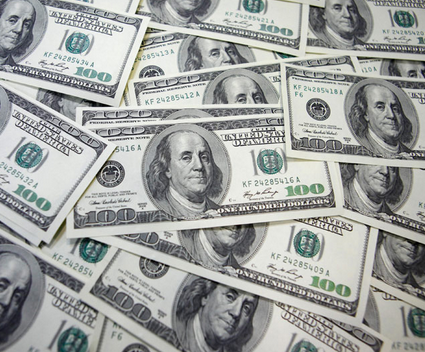What do U.S. expats think about using the U.S. dollar in Ecuador?
Not much, frankly, although it’s hard to deny that it makes life easier. We don’t have to worry about exchange rates or go through the hassle of trading dollars for a local currency, like expats in other countries are forced to do. In addition, calculating costs and comparing them to prices in the U.S., if we’re so inclined, is relatively easy.
addition, calculating costs and comparing them to prices in the U.S., if we’re so inclined, is relatively easy.
By the same token, the use of the U.S. dollar affords the locals one less opportunity to engage in “gringo pricing”: It’s more difficult to short-change customers who aren’t familiar with the local currency and that day’s exchange rate.
 Although President Lenin Moreno has said repeatedly that the dollar will remain Ecuador’s currency as long as he is in office, some politicians and economists continue to promote the idea that Ecuador should introduce a new currency of its own. They say that the dollar restricts the country’s financial options and that it’s an insult to national sovereignty, not to mention pride, that its money bears the likenesses of foreign presidents.
Although President Lenin Moreno has said repeatedly that the dollar will remain Ecuador’s currency as long as he is in office, some politicians and economists continue to promote the idea that Ecuador should introduce a new currency of its own. They say that the dollar restricts the country’s financial options and that it’s an insult to national sovereignty, not to mention pride, that its money bears the likenesses of foreign presidents.
One option that has been discussed in recent years, although without gaining much traction, is the adoption of a regional Latin American currency, similar to the Euro in Europe.
Our opinion, however, is that the dollar is here to stay for the foreseeable future. In 1999, it rescued Ecuador from inflation rates that approached 100 percent and provided stability following a financial melt-down. You would be hard-pressed to find Ecuadorians today who would want to return to the sucre, which remains a staple only in antique stores and curiosity shoppes.
The dollar imposes financial discipline that is sorely lacking in many other Latin American countries — Venezuela and Argentina come readily to mind. Because Ecuador can’t print its own money, it can’t manipulate the money supply. The dollar also means that financial policies of the central government have less effect on the day-to-day lives of Ecuadorians and expats. Ecuador’s Central Bank can’t make any of the fiat-currency moves available to most other countries which often lead to disastrous results.
Former president Rafael Correa had it right when he referred to the dollar as “Ecuador’s financial straitjacket.” On the other hand, it makes it almost impossible for the government to engage in political legerdemain when confronting its fiscal problems, such as the current debt crisis.
All paper money, of course, is a convenient fiction, smoke and mirrors based on a shared hallucination of value. But to us, most of the evidence points to a standard of living in Ecuador that, with a little straitjacketed discipline, should improve in the coming years.
After all, some hallucinations are better than others.
___________________
Excerpted from Expats in Ecuador: Life in Cuenca Second Edition





















